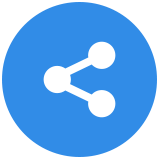Product Architect Enterprise Data Us Apply
uMed is a cutting-edge healthtech and data platform revolutionizing clinical research. uMed combines RWE with the power of patient-generated data to address the evidence gaps in life science research.
By leveraging uMed’s ACCESS Research Platform, embedded across a global network of healthcare institutions, researchers can rapidly access and engage with patients to generate insights derived from the decentralized collection of electronic health records, clinical outcomes, patient-reported data, and biosamples.
Who we are looking for
We are looking for an experienced and highly skilled Product Architect, Enterprise Data to join our dynamic team. In this role, you will serve as a front 'face' of uMed's data infrastructure. Your expertise in data architecture, analysis, and management will be critical in designing and delivering innovative data solutions that support our business objectives.
The ideal candidate is a tenacious, ambitious self-starter with a deep passion for data.
Responsibilities
1. Data Strategy & Architecture
- Collaborate with clinical/medical stakeholders to understand business requirements and translate them into comprehensive technical and data specifications.
- Partner with stakeholders to understand their data requirements and work closely with the engineering team to deliver tailored solutions.
- Lead the design of robust data architectures, including integrations, transformations, databases, and data warehouses, working closely with the engineering team to oversee the implementation of these initiatives.
- Develop and maintain a data architecture framework, encompassing reference data, metadata, and master data management.
- Stay up-to-date with industry trends and advancements to ensure the organization’s data practices remain cutting-edge including opportunities to integrate AI into uMed’s data capabilities.
2. Data Governance & Standards
- Work across teams within uMed to develop data strategies, policies, and standards to ensure data integrity, accuracy, consistency, and accessibility.
- Create logical and physical data models, defining a standard business vocabulary and strategic data requirements.
- Develop and oversee data quality rules, ensuring alignment with business architecture and enterprise strategy.
- Lead initiatives to integrate new tools/technologies into existing data standards and structures.
3. Data Management & Integration
- Organize and optimize data at both macro and micro levels to enhance data usability and efficiency.
- Define and document end-to-end data flows, including internal and external inputs, outputs, and system integrations.
- Research and evaluate new data acquisition opportunities and recommend tools and technologies for data management and integration.
- Ensure data security by upholding advanced digital security systems.
4. Data Analysis & Insights
- Own the provisioning of data access to internal and external stakeholders to facilitate the creation of outputs that utilize uMed’s unique data access.
- Collect, process, and analyze complex data to generate actionable insights and identify trends, patterns, and opportunities for improvement.
- Provide data-driven recommendations to stakeholders based on in-depth analysis and interpretation.
Requirements
- A proactive mindset that combines a passion for utilizing health data to further research that can be used to improve the lives of people living with disease.
- Proven experience in managing and working with healthcare data and healthcare data standards.
- Strong experience with healthcare regulations and standards (e.g., HIPAA, GDPR, ISO:270001 guidelines).
- Demonstrated experience collaborating with clinical and medical stakeholders to efficiently gather and translate business requirements.
- Extensive experience in designing data architectures and developing tools for cleaning and normalizing health data.
- In-depth understanding of modern database and information technologies, including relational and non-relational databases, ETL processes, and data integration tools.
- Strong ability to analyze, interpret, and organize large datasets, delivering actionable insights and solutions.
- Proficiency in data visualization tools (e.g., Tableau, Power BI, Zoho) to present complex data in an intuitive and understandable format.
- Experience with data governance frameworks and best practices for maintaining data integrity, accuracy, and accessibility.
- Knowledge of digital security systems.
- Experience in designing and implementing logical and physical data models.
- Demonstrated ability to stay updated on emerging data technologies and trends to recommend and adopt innovative solutions.
- Strong problem-solving and analytical abilities.
- Excellent communication skills, capable of translating complex technical concepts into non-technical terms for diverse audiences.






